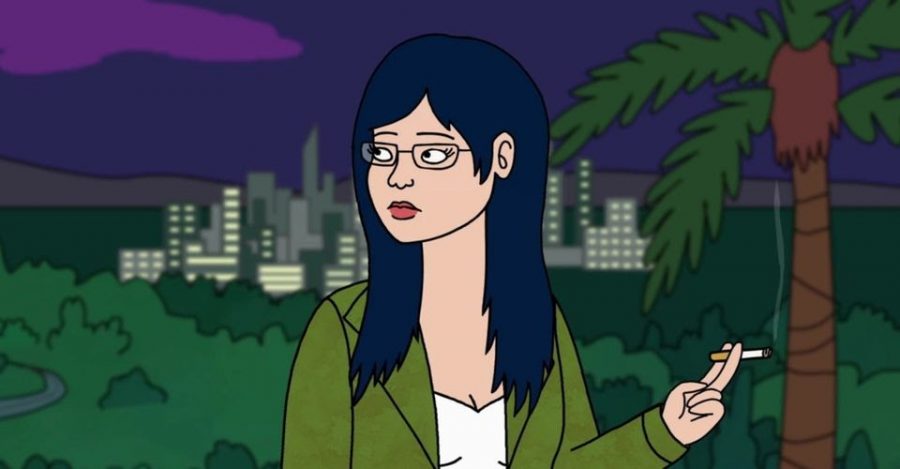Netflix’s “Bojack Horseman” influenced my work as a journalist
Photo courtesy of Comic Book Resources
Diane of Netflix’s ‘Bojack Horseman.’
Netflix’s “Bojack Horseman” may have ended in January of 2020, but its pressing social commentary on modern issues keeps it feeling relevant. As I begin my path as a reporter, I can’t help but reflect on the show’s media commentary.
After a few months of binging Netflix at home during quarantine, the five-season-long animation “Bojack Horseman” has got to be my favorite series I’ve watched. The story follows the life and mistakes of its titular antihero, a half-man half-horse (think opposite of a centaur) actor who’s stuck in his ’90s glory days when he starred on the sitcom “Horsin’ Around.”
The show does not steer away from controversy as it tackles many hot topic social issues — ranging from the problems of abuse by men in power, celebrity culture and mental health. Who knew a show about an anthropomorphic horse would be so thought-provoking?
One recurring facet of the show is its representation of the media, its power and the role of journalism, particularly in the star-splashed Hollywoo(d). This media-centered narrative is largely propelled by another primary character: Diane Nguyen.
Diane is a realistic, thoughtful, contradicting, progressive feminist and she’s also a writer. She enters the scene when she’s hired to be the ghostwriter for Bojack’s memoir “One Trick Pony,” which later wins him a Golden Globe for Best Comedy or Musical, despite being neither…and also it’s not even a movie (uhh, oops?).
Diane has a pretty varied career following “One Trick Pony.” She writes celebrity Tweets, articles for “Girl Croosh” and later lands a job as executive producer for a movie called “Philbert” in season five.
She’s constantly searching to make meaningful stories in her roles, ie. her watchdog stories uncovering “the ugly underbelly of American capitalism,” as her boss Stefani Stilton calls them, for the feel-good Girl Croosh. Her work doesn’t get many clicks though on the clickbait-central website. I guess they weren’t ready for that conversation.
While Diane maintains that there’s no such thing as unbiased journalism, she’s guided by truth in her strife to make something that really matters, and we see her passion for truth manifest itself again in season two.
In the episode “Hank After Dark” (the Bill Cosby episode), Diane takes a stand against the beloved Hank “Uncle Hanky” Hippopopalous, the nation’s favorite long-time show host, who has eight allegations of sexual assault from former assistants. She goes on MSNBSea, where she’s challenged by news anchor Tom Jumbo-Grumbo, who asks all the wrong, highly inappropriate questions.
Tom lazily concludes, “We don’t know the facts” and Diane argues, “See, this is part of the problem. You’re supposed to be a journalist, and you won’t even tell your audience what he’s accused of.”
That’s just like Tom Jumbo-Grumbo to dance around serious news. His rhyming headlines have a tendency to focus on celebrity news and gossip as the biggest stories, while the tickers crawl past with more pressing news like: “U.S. celebrates three days without mass shooting — this just in: never mind” or “Bipartisan committee puts forth plan to continue to ignore Flint water crisis.”
But perhaps that’s just what keeps people watching the news here in Hollywoo, and perhaps why people aren’t ready to digest Diane’s attempts at honest journalism.
I’ve got to say Diane was one of my favorite characters. She’s a cause for many mixed feelings among “Bojack Horseman” stans largely because she’s hypocritical — and she certainly is, but that’s a whole other topic to unpack.
Still, I appreciate her endless vault of passion and the way her cynicism pushes her to at least try to do some good through her work. Maybe I mostly relate to her crazy bouts of writer’s block with sides of zero motivation.
Rating: 4.5/5 stars







